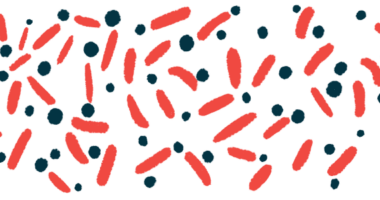FDA puts CMTX-101 on fast track for treating CF lung infections
Therapy also gets QIDP designation for treating drug-resistant illnesses

The U.S. Food and Drug Administration (FDA) has granted two new designations to CMTX-101, an antibody-based therapy Clarametyx Biosciences is developing to treat bacterial lung infections in people with cystic fibrosis (CF).
The regulatory agency granted CMTX-101 fast track designation, which aims to speed the development of new medicines that could fill important unmet needs. This status gives Clarametyx access to perks like more frequent meetings with the FDA during the drug development process and, potentially, accelerated approval.
Also, the FDA granted CMTX-101 qualified infectious disease product designation, or QIDP, which is specifically designed to incentivize the development of new treatments for infections that can become resistant to available therapies. Perks of this designation include a guarantee of five extra years of market exclusivity if CMTX-101 is ultimately approved.
“The receipt of both fast track and QIDP designations from the FDA underscores CMTX-101’s potential as an innovative therapy for patients suffering from chronic respiratory conditions,” David V. Richards, CEO of Clarametyx, said in a company press release. “We look forward to working even closer with [the] FDA to expedite the approval of a new therapy for patients suffering from difficult-to-treat pulmonary conditions.”
CF is characterized by thick, sticky mucus that builds up in the lungs and other organs. This mucus provides a fertile breeding ground for infectious bacteria, helping make bacterial lung infections a common problem for people with CF. A specific type of bacteria called Pseudomonas aeruginosa — found in the environment — is often involved in serious CF lung infections.
Clinical trial now testing CMTX-101 against P. aeruginosa
CMTX-101 is designed to destroy biofilms, which are dense networks of molecules that help protect bacteria from the immune system and make them harder to treat with traditional antibiotics. By clearing away biofilms, the therapy aims to make it easier for immune cells and antibiotics to eradicate infecting bacteria.
The therapy is now being tested in a Clarametyx-sponsored Phase 1b/2a clinical study (NCT06159725) involving adults with CF who are infected with P. aeruginosa. The study’s main goal is to evaluate the safety of CMTX-101.
The trial is still recruiting participants at sites across the U.S. Enrollment is expected to be completed by the end of this year, according to Richards.
Study participants are being randomly assigned to receive a single infusion of CMTX-101 at one of three doses, or a placebo, in addition to standard antibiotic therapy. The study is double-blind, meaning that neither researchers nor participants know which patients are receiving the medication, or at which dose.
Interim data from 21 participants, shared earlier this year, indicated that the therapy was generally well tolerated, with no notable safety findings. Those data also showed that CMTX-101 reduced levels of P. aeruginosa bacteria.








